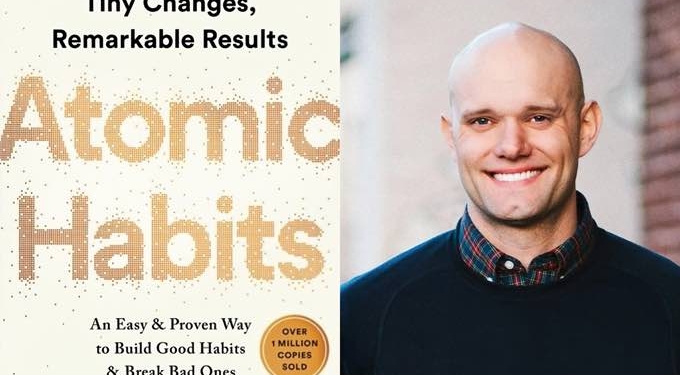Source: APB Speakers
In the above video, author James Clear discusses the concept of atomic habits and the potential of small, incremental changes to drive personal growth and transformation. See the summary below.
James Clear, best-selling author of APB Speakers, is a popular speaker focused on habits, decision-making, and continuous improvement. His work has appeared in the New York Times, Entrepreneur, Time, and on CBS This Morning. His website receives millions of visitors each month and hundreds of thousands subscribe to his popular email newsletter at jamesclear.com.
SUMMARY
James Clear begins by suggesting that improving by just 1% every day for a year, compounded, would make you 37 times better by year's end. Clear argues that the focus shouldn't solely be on radical transformation or rapid success, but also on understanding the power of small habits and everyday decisions that are constantly transforming us.
Clear delineates four stages of habit formation:
- Noticing: Clear argues that many people confuse a lack of clarity with a lack of motivation. People think they need to be motivated or have the willpower to perform a habit, like writing or working out. But in reality, they need a plan. Clear suggests creating ‘implementation intentions' where you state when, where, and how you will execute the habit. To address potential challenges, Clear recommends a ‘failure pre-mortem'. This involves imagining a future scenario where you failed at forming the habit, then identifying and addressing those obstacles in advance.
- Wanting: Clear highlights the influence of the physical environment on our desires and habits. We often want things because they are options in front of us. By controlling our environment, we can make good behaviors easier and bad ones harder. For instance, if you want to practice guitar more, leave it in the middle of your living room. Clear contends that maintaining positive habits is almost impossible in a negative environment.
- Doing: Clear emphasizes the importance of practice. Instead of focusing on the goal or finish line, one should concentrate on ‘putting the reps in'. He advocates optimizing for the starting line, i.e., making it as easy as possible to get started, rather than the finish line. The outcomes, he argues, will naturally follow.
- Liking: The fourth stage focuses on the reward. Clear says we repeat behaviors because we enjoy them; if the process isn't enjoyable, we're unlikely to stick with it. Since rewards for good habits are often delayed, Clear suggests finding ways to bring rewards into the present moment. He recommends simple methods like tracking progress on a wall calendar, providing immediate satisfaction and motivation to continue.
Clear then introduces the concept of identity change. He explains that every action you take is a vote for the kind of person you want to become. Habits, therefore, are a way to change our identities over time. Every time you practice a habit, you reinforce the identity associated with that habit.
The ultimate goal, Clear concludes, is not to accomplish a task but to cultivate an identity—to become a reader, a writer, a runner, etc. Habits serve as a path to achieve both external success (e.g., weight loss, earning more money) and internal transformation (e.g., becoming more confident, less stressed). In essence, if you can change your habits, you can change your life.
















